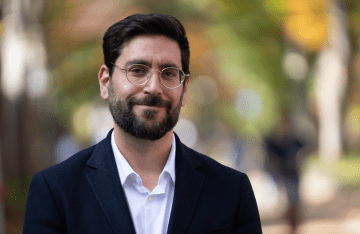Is Social Media Surveillance the Virtual Stop-and-Frisk?
A new study by Desmond Patton develops a theory of everyday racism in digital policing.

Photo Credit: Scott Rodgerson / Unsplash
As the inescapability of social media erodes the boundary between public and private spheres, law enforcement faces new questions about online surveillance. Almost all police agencies use social media for criminal investigations. But when police track activity on Facebook, Instagram, or Twitter, to what extent do they profile the same racial and ethnic groups that they disproportionately target in real life?
“Stop and Frisk Online,” a new article lead-authored by Assistant Professor Desmond Patton for the journal Social Media and Society, presents a framework for understanding how targeted social media policing negatively affects communities of color. Reporting on a study Dr. Patton led with a team of researchers, the article develops a theory of “everyday racism in digital policing” and examines the impact of big data on criminal justice for populations who already face disproportionate police attention.
“Does surveillance reduce violence or does it permit targeted violence against Black and Brown individuals?” Dr. Patton and his co-authors ask. “Who is being surveilled and why?”
The article analyzes case studies like the 2014 arrest of over a hundred alleged gang members in Harlem based in part on their social media activity, the federal surveillance of #blacklivesmatter activists, and the case of Jelani Henry, a teenager whose activity on Facebook caused him to be detained at Rikers for 19 months. Raising criticisms of police tactics and regulations, Dr. Patton’s research team articulates an opportunity for law enforcement to operate with stronger transparency in the digital era.



